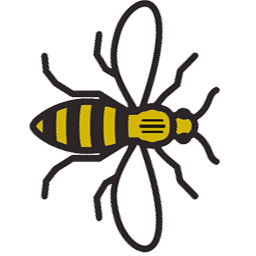Children, Young People and Families Practitioner
The End-Point Assessment for the Children, Young People and Families Practitioner apprenticeship will include a Practical Observation and a Competence Interview.
What they do
Within the Children, Young People and Families Practitioner apprenticeship, Apprentices will work with a range of people, including carers, to achieve positive and sustainable change in the lives of children, young people and families. They will demonstrate a passion to care for children, young people and families and will be skilled in recognising and assessing the complex needs that children, young people and families often present, including any specific interventions or referrals.
Their approach will be one of respectful curiosity that challenges and supports children, young people and families to achieve their potential and stay safe. A Children, Young People and Families Practitioner will work alongside other professionals and organisations to share the responsibility for improving the outcomes of individuals. Each piece of work with a child or family will be different, enabling them to exercise judgement on a range of evidence-based approaches to inform their practice.
They will regularly evaluate the effectiveness of their methods and actions with regular supervision from an experienced practitioner. At the end of this apprenticeship, the high quality of their practice will make a real difference to those that they work with.
Within the Children, Young People and Families Practitioner apprenticeship standard, there are two pathways available:
Pathway 1: Practitioner in Children’s Residential Care
In this pathway, the Apprentice can work in a number of settings e.g. a children’s home, a residential special school or a secure children’s home. The children might be living on their own or in a larger group. The Apprentice will take the lead in developing and delivering the child’s placement plan and will work with the child to support their health, education, social and day to day needs, playing a significant role in helping them thrive and fulfil their potential.
Pathway 2: Children, Young People and Families Practitioner within the Community
In this pathway, the Apprentice will understand the importance of, and be skilled in, early intervention and safeguarding work. They will manage risk across the spectrum needs for children, young people and families. They may work in settings as diverse as family homes, youth centres, early years, youth justice, children’s centres, educational settings and the community. They will play a significant role in working across agencies to improve outcomes. They may work with particular age groups, across the full age range or specifically with families. By supporting the confidence and skills of children, young people and families, the Apprentice will help them to overcome barriers and maximise their independence.
End-Point Assessment Components for the Children, Young People and Families Practitioner Apprenticeship
- Practical Observation
- Competence Interview (with accompanying Portfolio)
Practical Observation
The purpose of the Practical Observation is to assess the Apprentice’s competency within their work environment. The 55-60 minute Observation will be preceded by a 10-minute initial briefing session and will be followed by a 15-20 minute Question and Answer session, ensuring the End-Point Assessor has the opportunity to confirm key knowledge, skills and behaviours presented throughout the Observation and to ask any follow-up questions.
The Observation must allow the Apprentice to work with or on behalf of a child or young person as an individual in their own right and as a central part of a family/carer entity. It should allow them to demonstrate the application of their Knowledge, Skills and Behaviours.
Competence Interview (with accompanying Portfolio)
The purpose of the Competence Interview is to ensure that the Apprentice understands and can explain the work presented in their Portfolio and that there is no plagiarism involved in the work. It is an opportunity for the End-Point Assessor to discuss with the apprentice the content of the Portfolio, allowing them to seek reassurance, where necessary, that the Apprentice meets or exceeds the Apprenticeship Standard.
The End-Point Assessor will not assess the Portfolio, but instead use it to inform the questioning for the Competence Interview, which is a structured discussion of 55-60 minutes between the Apprentice and the End-Point Assessor, focusing on the work covered in the Portfolio.
The Interview will look at the work the Apprentice has undertaken, the strengths demonstrated and will consider any gaps or weaknesses in Knowledge, Skills or Behaviours. There will be probing questions and discussion about the professional practice undertaken within the course of the apprentice’s work, based on the application of the core skills and knowledge and behaviours which will:
- Confirm and validate judgements about the quality of work;
- Provide evidence for any gaps or perceived weaknesses in Skills and Knowledge;
- Explore aspects of the work, including how and why it was carried out.
More Information
If you would like to learn more about the Children, Young People and Families Practitioner apprenticeship standard, check out our factsheets page, or alternatively you can find more information via the Institute for Apprenticeships website.

£700 (Remote) £800 (Face-to-Face)
- Payable at Registration: £175
- Payable at Gateway: £525 (Remote) £625 (Face-to-Face)
- Level 3 Diploma in Residential Childcare
or
- Level 4 Certificate in Higher Education in working with Children Young People and Families*
* TQUK does not offer this qualification. It can only be undertaken in higher education facilities.
- Level 2 Award in Functional Skills English
- Level 2 Award in Functional Skills Mathematics
- Disclosure and Barring Service
*25% registration fee is transferrable to a new registration should an Apprentice withdraw from the apprenticeship. Upon receipt Apprentices, Employers and Training Providers will gain access to the TQUK EPA management suite.
**75% fee paid at gateway in non-refundable as we anticipate that once the apprentice has passed through gateway they will be ready to undertake the end-point assessment elements. If the 75% payable upon gateway is not paid within 30 days of invoice we, as the EPAO, will put a hold on any end-point assessment activities being undertaken and any certification processes.
Training Qualifications UK offers one free re-sit per multiple-choice test where included within a standard. Element assessments re-sits will be charged per assessment and standard








